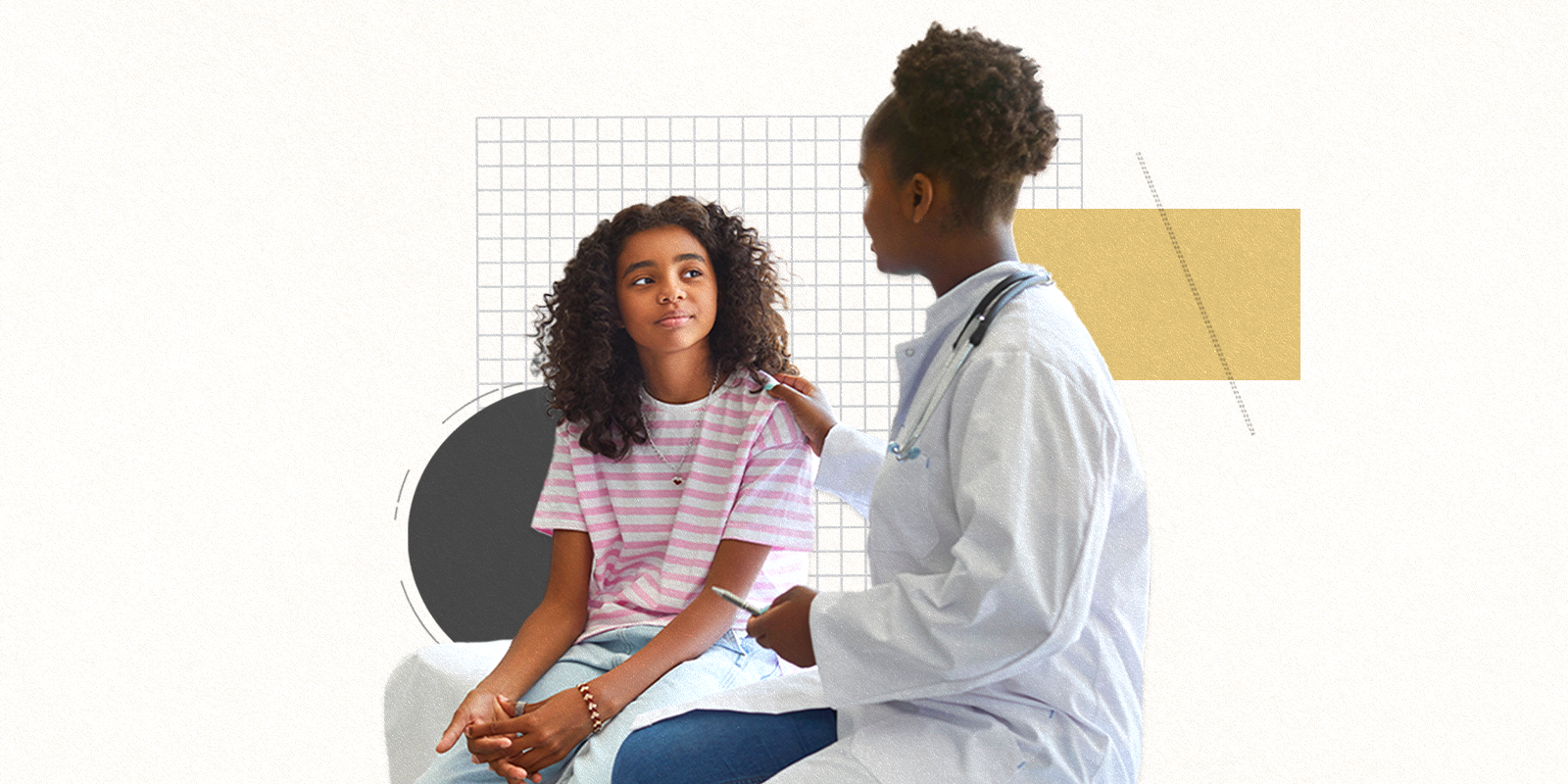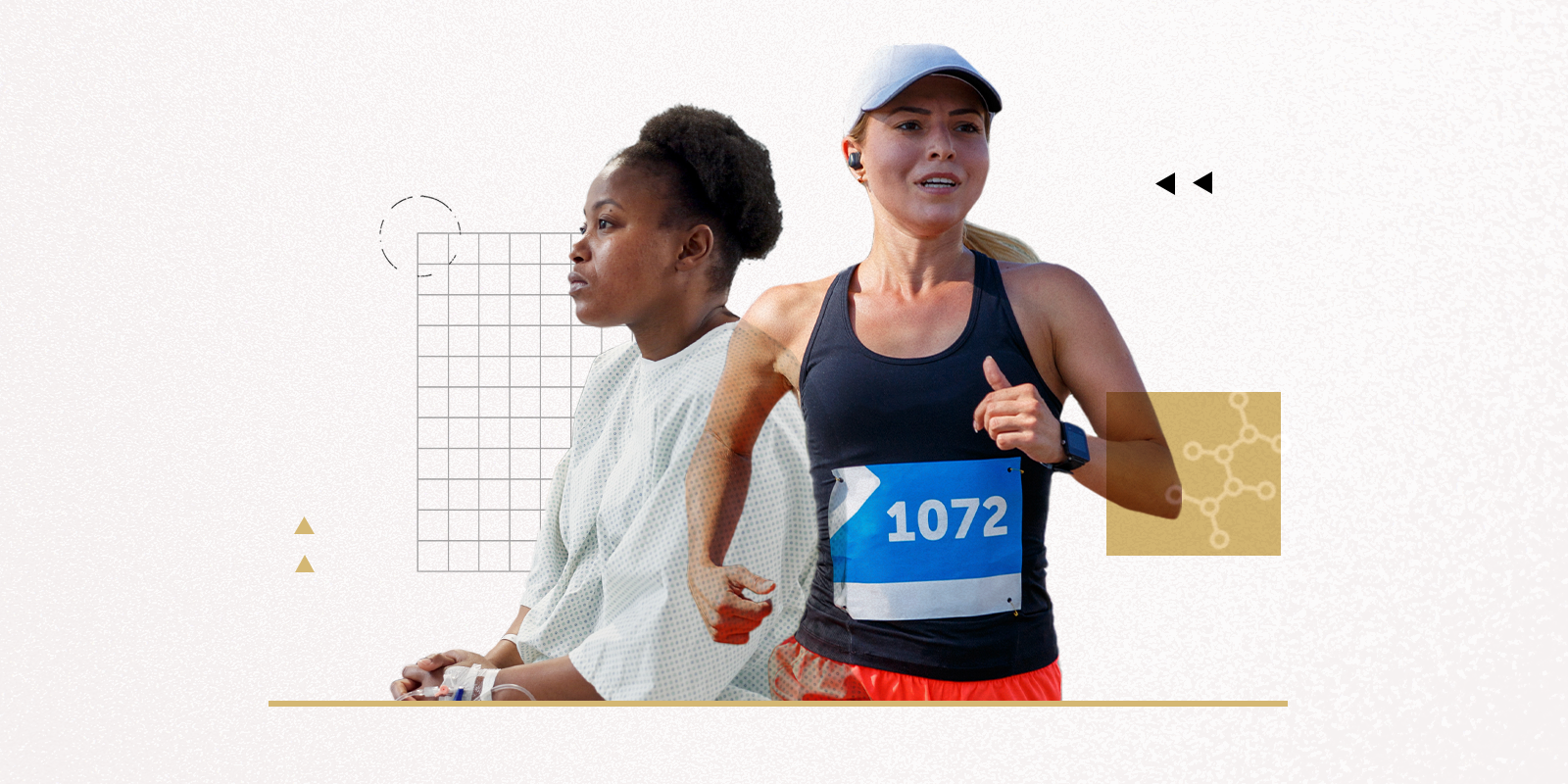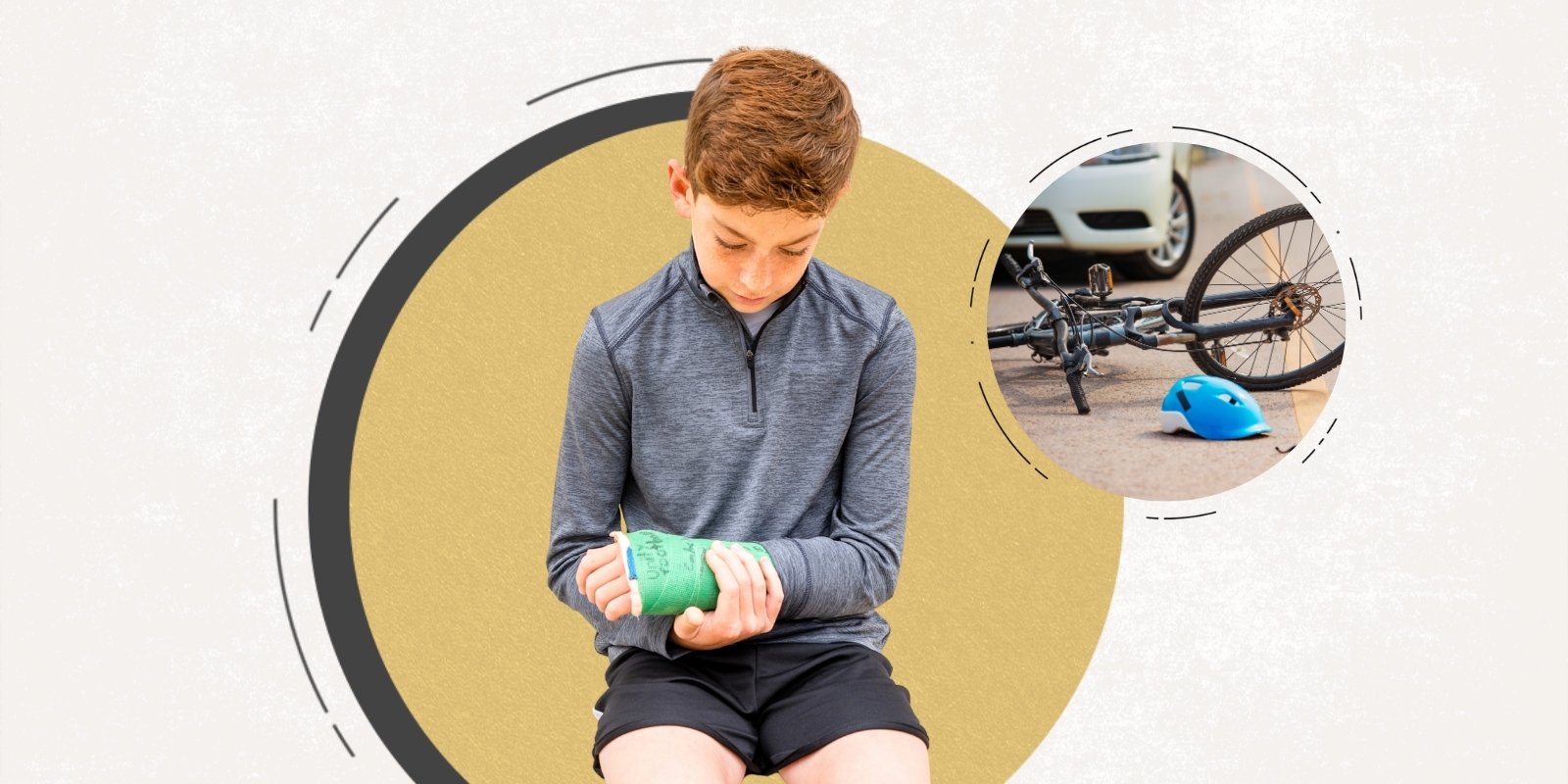At what age do you recommend first seeing a gynecologist?
Alaniz: The American College of Obstetricians and Gynecologists recommends a first visit between ages 13 and 15. This visit may be prompted by a concern, or it might be proactive to talk about reproductive health and the challenges of navigating life as a teen.
What’s a common reason adolescents visit your practice?
Roth: Period problems are one of the more common issues we see in our clinic. When a girl’s period impacts her ability to be effective in school and sports, we want to help. Girls shouldn’t be staying home because of heavy periods and/or pain. There are options.
At what age can girls expect to get their period?
Alaniz: We are seeing a trend toward earlier puberty and menstruation in girls. Anything between 10 and 15 is typical, with most starting around age 12 and a half.
What can a teenager expect from a first visit to a pediatric gynecologist?
Roth: With teens and adolescents, our appointments are mostly about talking, learning and educating. I spend a lot of time just getting to know my patients and learning more about their periods and the reasons that brought them in. It’s rare that we do pelvic exams.
Alaniz: It really depends on what's going on. If a patient comes in with a specific complaint about her vulva, we're going to take a look. But we only do what’s needed and patients are always in control. Most of our visit is focused on education. We have a lot of pictures to explain to teens what is happening in their bodies during the menstrual cycle. The pictures illustrate why you’re having a period, what’s happening with your hormones, and what’s happening with your ovaries and uterus. We may begin triaging any issues related to the menstrual cycle. We ask a lot of questions and don’t assume that someone knows something just because we think it’s common knowledge.
"A pretty common conversation starts with 'Tell me more.' For example, someone comes in with a heavy period. So I’ll ask, 'How many pads are you using?' and talk about their concerns. The goal is to characterize the problem so that by the end of the appointment, they feel heard and have more options that can help them live their best life." – Lauryn Roth, MD
What else do you do to help girls navigate?
Roth: We get a lot of requests for help using a tampon. The important thing is that this request is driven by our patient and not anyone else. If our patient isn’t interested or ready, it's not going to happen. But we can help demystify the process and make it less scary.
Alaniz: If we’ve walked through tampon placement, and it's still not working, definitely come in and see us. Because there can be structural things that make it more difficult to place a tampon. So if girls are really struggling, or they're having pain, we want to evaluate.
What options do teens have for menstrual hygiene products?
Alaniz: We encourage girls to find what’s comfortable and what helps them get to school and their activities. Tampons, pads, menstrual underwear and menstrual cups are methods to explore. Some girls might prefer to use a combination, such as a tampon and menstrual underwear.
Roth: Period underwear has been a game changer for a lot of our patients, especially kids who are neuro-divergent or have sensory issues with pads and tampons.
What do you wish teens knew and understood about their menstrual cycle?
Alaniz: Teens need to know what is normal and what is not normal. Girls will come in, and they've been bleeding for 10 days or longer – that’s not normal. Your period should be seven days or less. If you're bleeding more than seven days, changing a pad or tampon more than every hour or having frequent flooding accidents that's abnormal.
Roth: The other thing that I wish girls knew is that your periods shouldn't get in the way of your life. We’ve perpetuated this idea that periods are painful, and you might have to spend two days in bed. Or that you can’t play sports because your bleeding is so heavy. These are myths. If your period is getting in the way of your life, we want to see you. We may be able to help.
What do you wish parents understood?
Alaniz: Parents sometimes think that period problems can only be helped by prescribing birth control. Birth control is great, and it does have many non-contraceptive benefits. But we have non-hormonal options as well.
What are some misconceptions you’re exploring with young patients?
Roth: Teens have access to a terrifying amount of misinformation from social media and Tik Tok. One bizarre trend is people filming themselves getting IUDs or Nexplanons (two types of long-acting birth control methods). Patients think it’s going to be a terrible experience based on what they see on these videos. We’re also seeing a lot of myths about birth control being perpetuated because of social media trends.
Alaniz: There also seems to be a trend toward placing certain standards on what one should look like. Girls are worried about their labial anatomy, based on what they see on social media. So we need to help girls understand that differences are normal. We have a vulva diversity book in our clinic that we use to educate our patients on the differences in labial anatomy.
"We need to help girls understand that differences are normal." – Veronica Alaniz, MD
What about teens and sex?
Roth: Teens are having sex. And they're having sex younger and more frequently than we think. A 2020 study said that 20% of 15-year-olds have had sexual intercourse, and 60% of 18-year-olds have had sexual intercourse. By age 25, 90% have had sex.
The takeaway is teens are still having sex. My job is to provide care regardless of their choices. It doesn't matter if I agree with it or not; it's my job to provide care. This is how I approach such conversations.
Alaniz: Another thing parents should know is that younger generations have a variety of sexual experiences. It’s more than “penis in vagina” – it’s about relationships and different types of physical interaction. As providers when we talk to our young patients, we need to consider the different types of sexual activities young people are participating in
What would you say to parents and caregivers about helping adolescent girls be healthy?
Roth: The first thing I’ve noticed is how caregivers and daughters who have had safe conversations prior to our appointment seem to have more positive relationships in general. The second thing I’ve noticed is also anecdotal, but parents who feel comfortable sharing their own stories can help their kid feel less alone. Saying something as simple as “Hey, I remember bleeding through my clothing onto a chair once, and it was really embarrassing” seems to have a positive impact.
Alaniz: Yes! This open dialogue is so important. I would also add that modeling body positivity as much as possible – especially during puberty when all those changes are happening – is one of the best things we can do as adults for teenage girls.
Why should an adolescent see a pediatric gynecologist?
Alaniz: Seeing an adolescent gynecologist with specialty training gives teens an open, non-judgmental place for them to discuss their concerns about reproductive and sexual health. In addition to routine gynecological care for adolescents, we also provide surgical care and help with other unique gynecologic needs that affect infants and children. We provide evaluation and management for conditions such as ovarian cysts, endometriosis and congenital anomalies that affect the reproductive tract.
Roth: Bottom line, as specialists, we approach things differently. We’re not like your mom’s gynecologist. We take more time, and we have additional resources so we can provide age-appropriate specialized care.
This interview was edited for length and clarity.






